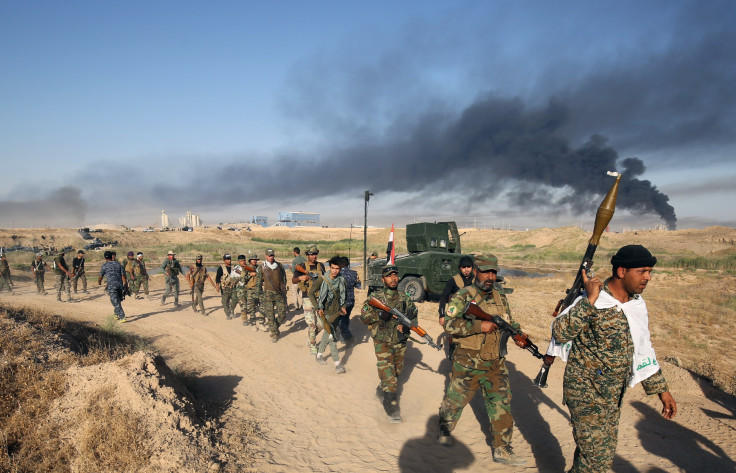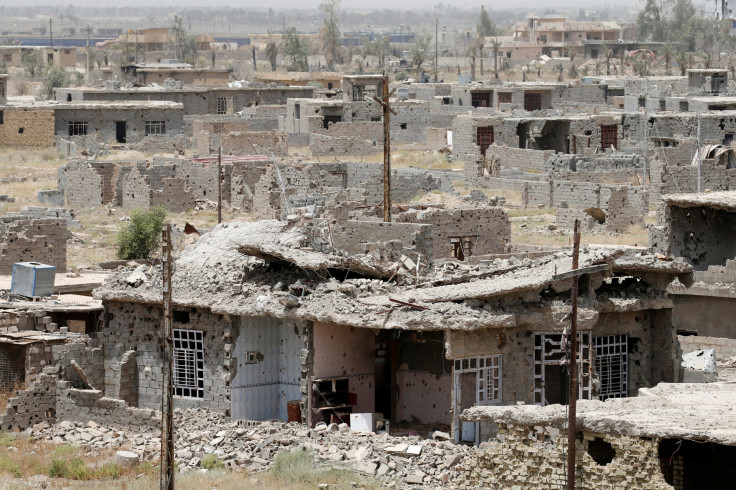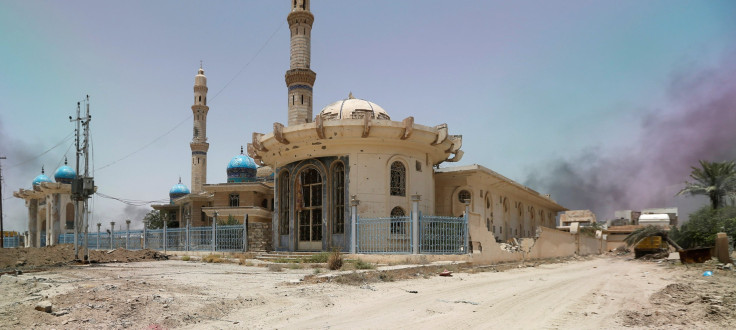ISIS In Iraq: Why The Iraqi Military Has Taken So Long To Defeat Islamic State Group In Fallujah

It’s been two years, but the battle for Fallujah is not over.
After Iraqi security forces announced victory there last weekend, the U.S. said that only a third of the city, situated in Iraq's western Anbar province, had been cleared of Islamic State group militants. The main obstacle for a clean win is money — or a lack of it. The years of combat have taken their toll on the U.S.-backed coalition fighting the terrorist group, also known as ISIS. And at a cost of billions of dollars, it's one of the most expensive battles since the withdrawal of U.S. troops from Iraq in 2011.
The fight against ISIS in Iraq and Syria comes with a hefty price tag of $11.5 million a day. The U.S. alone has pledged $5.3 billion to fight ISIS in 2016, about 1 percent of the total defense budget, while the Iraqi economy is carrying the burden of a military outlay that makes up a fifth of its annual budget.
On the other side of the battlefield are ISIS fighters who are funded not only by the profits from captured oil fields in Iraq and Syria but also by wealthy Gulf businessmen, a 2015 investigation by International Business Times revealed.
A combination of money and willful blindness has ensured that Sunni businessmen in the Persian Gulf region who are funding ISIS through Sunni tribesmen intermediaries go almost unchallenged, Eissa al-Issawi, the head of Fallujah's local council, told IBT. The tribal leaders provide ISIS with intelligence, cash and weapons that help the group stave off U.S.-backed Iraqi military forces and maintain the upper hand in battle, he said.

Mowaffak al-Rubaie, Iraq’s former national security adviser under then-Prime Minister Nouri al-Maliki, said a number of the government offices in Anbar province’s cities, including Fallujah, transfer money directly to the militants.
Although it is difficult to know the precise sums that are flowing to the remaining militants in Fallujah, the Iraqi government knows it’s up against a cash machine with no foreseeable limit, as long as ties between the Gulf and Anbar remain.
That's why the Iraqi military, advised by the U.S. government, is using its highly equipped, elite operation force to lead the Anbar campaign. Some 1,500 members of the counterterrorism unit are involved in direct combat, along with around 10,000 local soldiers and 8,000 members of the police force, many of whom are from local tribes.
The CT, as it is known on the ground, answers directly to Prime Minister Haider al-Abadi. The unit combines elements of the Iraqi army’s special operations forces with units of the interior ministry’s federal police. They are the most highly skilled and well-equipped soldiers in all of Iraq, which makes them the most valuable fighters on the battlefield.
In addition to receiving funding from coalition pledges and training from U.S. Marines, CT has access to a $19 billion fund that was established at the end of the Iraq war. But the losses of battle are costly — in Ramadi, Anbar's provincial capital, the force lost more than 200 armored Humvees, which cost $9.4 million to replace.
As the premier fighting unit, CT calls first dibs on cash coming in from the U.S. and the coalition, leaving the remainder — Shiite paramilitary forces, local tribesmen and the national police force — to divvy up the rest among themselves.

According to the U.S. 2016 Iraqi Train and Equip budget, CT has received $1.34 billion so far this year, more than 50 times that received by tribal forces in Anbar.
The money the coalition gives is transferred to the central government in Baghdad, which is supposed to distribute funds to its military branches across the country. But pro-government Sunni tribal fighters in Anbar told IBT the funds are not shared fairly, with money handed to those commanders who have fostered personal relationships in the finance ministry.
In 2014, Sunni tribal fighters in Anbar fighting against ISIS militants requested training and weapons support from the Iraqi government. Those weapons didn’t come until the end of 2015 and came only after the U.S. put pressure on the central government.
The lack of funding for tribal forces is a major problem, James Jeffrey, a former U.S. ambassador to Iraq, told IBT. Winning the fight in Anbar, he said, is contingent on gaining the support of local Sunni tribesmen. "The Fallujah tribe has always been split [between those who support ISIS and those who support the government] because the authority of tribal leaders has been watered down [since] the invasion of Iraq in 2003," Jeffrey said.
If Iraqi forces wholly capture Fallujah, it will mark a turning point in the Iraqi fight against ISIS, he said.
“All in all, Anbar will be secured,” Jeffrey said. It just might take a while.
© Copyright IBTimes 2024. All rights reserved.




















